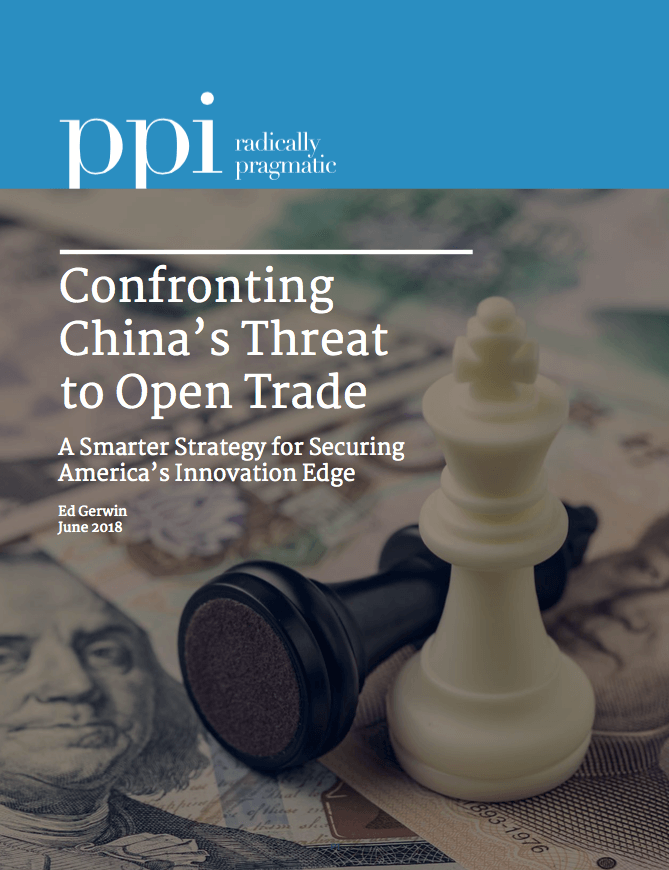The President’s blunt goal of reducing America’s trade deficit with China won’t address the threat of China’s high-tech mercantilism
WASHINGTON —The Progressive Policy Institute (PPI) today released a new report by Ed Gerwin, Senior Fellow for Trade & Global Opportunity, proposing a smart, targeted long-term U.S. strategy to combat China’s state-directed technology mercantilism, instead of the unfocused protectionist approach being pursued by the Trump Administration.
“The Trump Administration is right to highlight the threat that China’s state-directed technology mercantilism poses to America’s economic future,” says Gerwin. “But the Administration’s strategy—based on duties that damage the American economy and ‘America First’ policies that alienate our allies—is flawed, and won’t change China’s bad behavior. Neither will doubling down on that ill-considered strategy through this week’s announcement of additional trade taxes on $200 billion in Chinese-origin goods.”

“Instead of tariffs and trade wars, the United States needs to pursue a tough, targeted, long-term strategy that enlists allies, enforces rules and writes new ones, focuses negotiations, and ratchets up pressure on China—all while advocating aggressively to keep global markets open. We detail such a strategy in our new report.”
According to Gerwin, the linchpin of China’s future-oriented mercantilism is an extensive array of plans, policies, rules, and practices to enable the transfer and assimilation of foreign technology and intellectual property for China’s benefit. To achieve these goals, China is employing many unfair or illegal measures, including using foreign ownership restrictions and licensing approvals to compel American companies to transfer their technology, and directing and funding a highly coordinated effort by Chinese state-owned and private firms to acquire foreign tech firms. China’s conduct poses a threat to the United States, Gerwin notes, where IP-intensive industries alone support more than 45 million jobs and represent 39 percent of U.S. GDP.
But threatening duties on Chinese products is unlikely to upend China’s innovation mercantilism, Gerwin argues. Duties are likely to increase American consumer prices and reduce vital technology investments, while a tit-for-tat tariff war with China could cost an estimated 455,000 American jobs, most in less-skilled sectors. The Administration’s “go-it-alone” approach to trade is also alienating allies in Europe, Japan, Korea, and elsewhere who should be natural allies in opposing China’s technology mercantilism. Finally, there’s significant concern that President Trump may undercut the long-term effort required to address Chinese mercantilism by, instead, focusing on short-term “wins.”
America should keep all options on the table in opposing China’s abusive innovation practices, including targeted and intensifying trade sanctions, writes Gerwin. But these tactics must be part of a smarter, focused, long-term U.S. strategy that includes:
Gerwin calls on Congress to play a more active role in confronting China’s high-tech mercantilism by:
###
read more here:PPI_China_2018